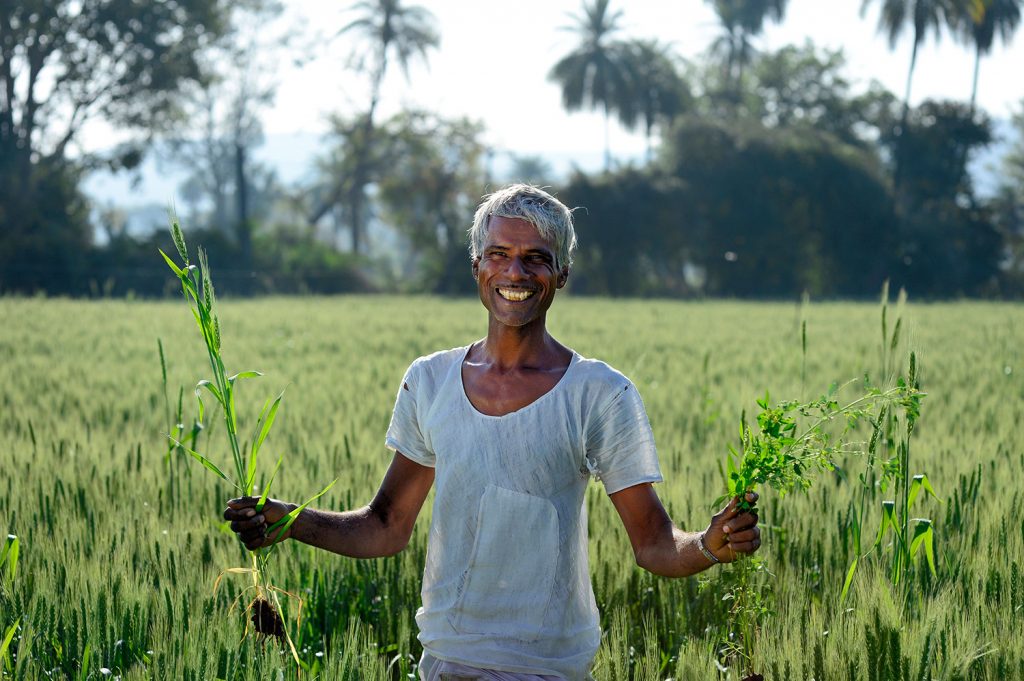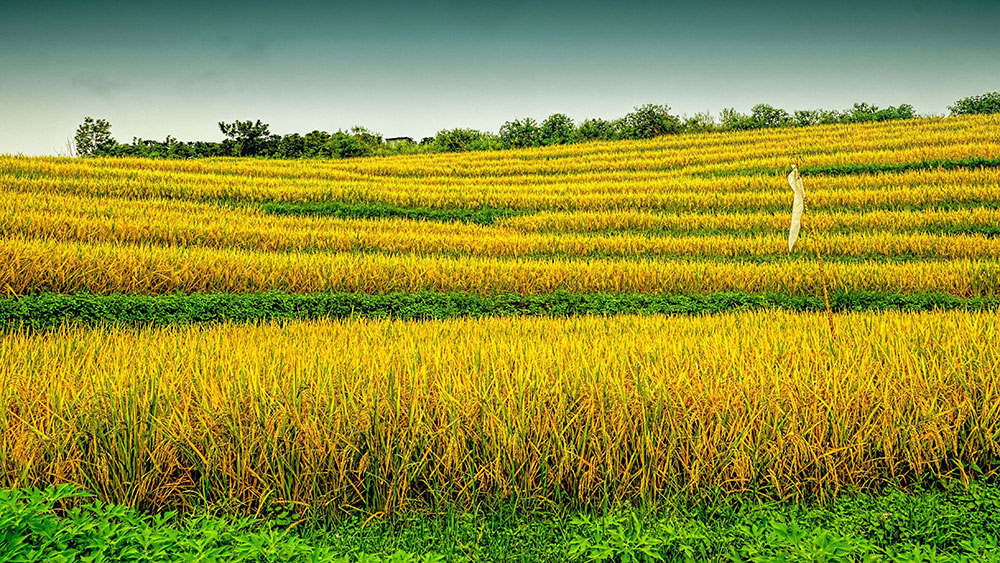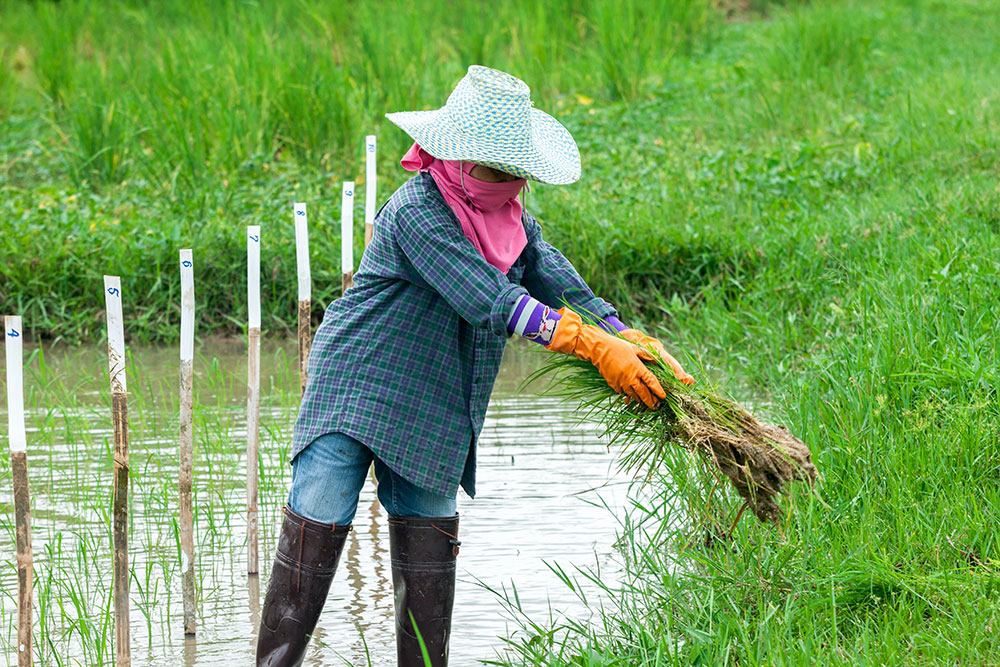Sustainable Rice Platform Standard: The world’s first sustainability standard for rice
The Sustainable Rice Platform Standard on Sustainable Rice Cultivation can be regarded as the world’s first sustainability standard for rice.
To strengthen Southeast Asia’s rice sector, Better Rice Initiative Asia (BRIA) project, a sister project of ASEAN Sustainable Agrifood Systems, has facilitated various interventions in collaboration with different stakeholders. Beyond the project implementation, the BRIA Regional Secretariat engages in various rice forums which can support the project in achieving its objective of raising the livelihoods of rice smallholder farmers.
The Sustainable Rice Platform (SRP) is one of the most prominent of these forums, in which GIZ-BRIA is also a member. With a mission to promote resource efficiency and sustainability in the global rice sector, SRP aims to offer the global rice supply sector a proven set of instruments to facilitate wide-scale adoption of sustainability best practices.
The SRP Standard on Sustainable Rice Cultivation – the world’s first sustainability standard for rice, defines an overall framework for climate-smart sustainable best practice in any rice-based system. The Standard was developed by a dedicated SRP Working Group and launched in October 2015. At the same time, a set of Performance Indicators (PIs) developed by IRRI (International Rice Research Institute), was launched as a quantitative tool to measure impacts of adoption of the Standard, or indeed any other farm-level intervention towards sustainability. SRP is now focusing on a multi-country field validation programme of the Standard, PIs, and assurance system, an activity to which BRIA is also actively contributing.
BRIA has supported the development and adoption of the SRP Standard in the four BRIA pilot countries, apart from on-farm activities for farmer empowerment. BRIA has been conducting pilot studies as part of the SRP’s multi-country field validation programme to assess the applicability, relevance and acceptability of the Standard to BRIA farmers as well as piloting the implementation of assurance schemes including the Internal Management System (IMS) for farmer groups in key rice producing countries. BRIA works with local authorities and private partners in these interventions.
BRIA Thailand and BRIA Indonesia have been actively participating in the SRP pilot testing. In Thailand, the pilot testing covers an assessment of the applicability of the standard, farmer training, establishment of an IMS, and a group assurance system. In Indonesia, BRIA is conducting a farmer survey to assess compliance of BRIA farmers to the SRP Standard.
Thailand’s Rice Department (RD), BRIA, OLAM International, and Bayer have jointly initiated pilot testing of the SRP Standard with farmer groups in the north-eastern province of Ubon Ratchathani. RD, Olam, Bayer are among the 55 SRP members. Besides, Olam, a major commodity trader, is also a partner in BRIA’s market linkages component. The pilot testing of the standard in Thailand is also considered as one of BRIA’s interventions to improve market access for rice farmers in this area.
This year, pilot testing of the SRP standard in Thailand has been verified through a 3rd party audit. The audit results demonstrated improvements in farm performance compared against the baseline. Twenty-eight farmers from Bua Ngam Community Rice Centre (CRC) and 43 farmers from Klang CRC have been verified as “working towards sustainability” (as provided for in the SRP’s Communication and Assurance Guidelines (Pilot Phase). According to this independent 3rd party assessment, the farmers’ compliance levels to the SRP Standard average 84% against the SRP Sustainable Rice Cultivation Standard. Since improvement at farm level may not be enough, BRIA believes the Standard will offer innovative business models to help strengthen business relationships among rice value chain actors and to enhance market linkages.
In Indonesia, an assessment survey was carried out by a local university at the end of August to early September. BRIA farmers from the three districts of Serdang Bedagai, Langkat, and Deli Serdang in North Sumatra Province, have been selected. According to this self-evaluation, BRIA ID farmers have complied at an average score of 68.7% against the Standard. The result of this study will later form the basis for further assessment by the Ministry of Agriculture on adoption of the SRP Standard in Indonesia.
The results of the pilot studies in this year will be collected and provided as feedback to SRP in order to improve the Standard and refine the assurance system. All in all, it can be concluded that the Standard has been proven as a helpful tool to assess sustainability performance of rice farmers and as an impact monitoring tool identify the risk and areas for improvement.
By Kamol Taukitphaisarn, Better Rice Initiative Asia





